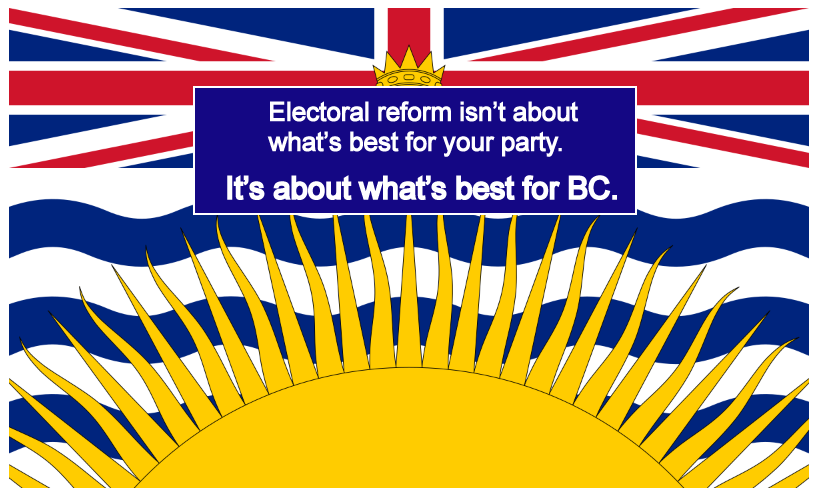Editorial: Our Choice of Voting Systems -- Part Seven: Extremism?
Why people defend FPTP and oppose Proportional Representation:
There have been some frightening statements made about proportional representation, by a few people. Why do they want to keep using First-Past-the-Post (FPTP)? What are their reasons for opposing all of the three Pro-rep systems being offered in this fall’s referendum? Let’s examine the reasons given and weigh their accuracy, one at a time.
Extremists?
One of the claims by opponents of ProRep is that it could allow the election of extremists and radicals. The government has set a threshold of 5% of the total votes cast for eligibility for “list” seats, and any district seats won by FPTP in a ProRep system would have to get just as many votes as any seat won under our current system. Let’s look at the actual election results in the last BC election and see how likely it is that any radical or extremist could win a seat under one of the ProRep systems.
BC has a large number of registered political parties – 27 of them, all across the political spectrum. 18 of those parties actually ran candidates in 2017, but candidates from only three parties were elected to office: Liberal, NDP, and Green. Would any of the fringe parties have a representative in the Legislature now if the last election had used a ProRep system? Look at the figures.
The BC Conservative Party ran 10 candidates in 2017, and got a total of 10,402 votes. That’s just over half of one percent of the vote – 0.53% — very far short of the 5% threshold.
The BC Libertarian Party, over there on the far right, ran 30 candidates and won a grand total of 7,838 votes. That’s well under half of one percent of the votes cast – 0.4%.
The BC Communist Party ran 6 candidates, and pulled in 802 votes altogether. Wow.
In fact, even if all the 15 parties who did not get anyone elected combined all their votes, and added in all the votes cast for the 31 Independent candidates plus the two labelled “no affiliation,” all those votes would still add up to only 2.52% of the total votes cast – not nearly enough to earn a “list” seat.
So much for BC’s radical tendencies.
If you’re curious about what percentage of the vote each of the three successful parties had, here’s the breakdown: the Liberal Party won 40.36% of the votes, the NDP won 40.28% of the votes, and the Greens had 16.84% of the votes.
As for extremists and First-Past-the-Post (FPTP) elections, perhaps only a few readers consider POTUS Donald Trump or recently elected Doug Ford in Ontario to be extremists, but they were elected under FPTP, and their actions do represent only the minority of voters who support them. Yet there they are, with all that power.
But what if we did elect someone really extreme at some point?
What if social or economic conditions one day provide fertile ground for discontent and radicalism? Would the lone radical be likely to hold the balance of power in one of those coalition governments? Well, no – because parties are not willing to work with other parties who don’t share enough of their values and goals. The lone extremist would have a voice, to represent all those other malcontents who voted for the extreme point of view, but still would have no power to force through any legislation or to block any legislation.
Extremists being elected under any system should, in any case, be cause for careful examination and analysis of the underlying reasons, and for addressing them.
Dear readers, that’s enough of your time for this section. After all, it’s summertime. In Part Eight we’ll continue to examine other arguments raised by opponents of ProRep. We’ll talk about accountability, simplicity, economic success, electoral boundaries, and other issues raised in defense of FPTP and in opposition to ProRep in future Parts of this series.

























